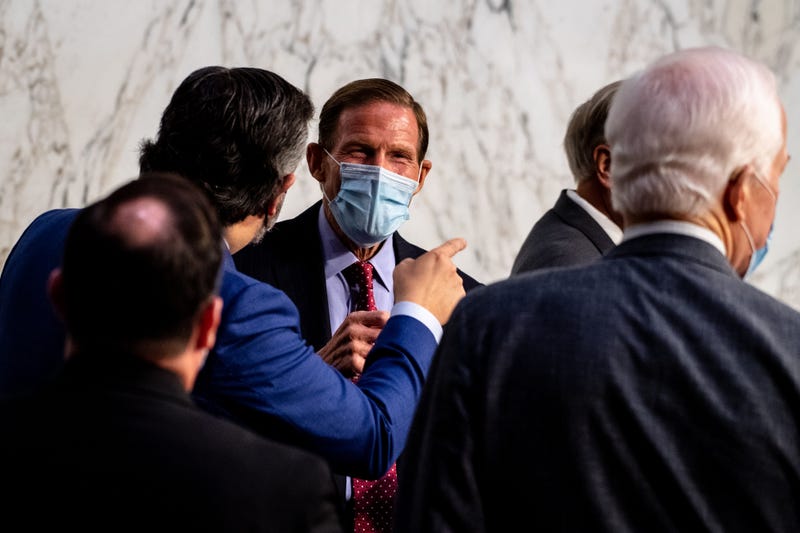
Republicans on the Senate Judiciary Committee seem content with the answers they're hearing from Supreme Court nominee Amy Coney Barrett. But their frustrated Democratic counterparts, including Connecticut Sen. Richard Blumenthal, have failed to get Judge Barrett to provide specifics on whether she'll carry forward the opinions expressed in her extensive writings on vital issues.
President Trump has claimed that if he loses the vote ending Nov. 3rd, the process will have been rigged. He has publicly stated that he chose Barrett so that the Supreme Court will have a full nine members-- including three he personally nominated-- if he challenges the legitimacy of mail-in voting, which he claims, without proof, is subject to massive fraud.
Sen. Blumenthal pressed Barrett, without success, on whether the Supreme Court should potentially tip the scales on the upcoming presidential election:
BLUMENTHAL: "Should courts, specifically the Supreme Court, be deciding the next presidential election?"
BARRETT: "So, the presidential election, as with all elections, is a matter put to the voters to cast ballots."
BLUMENTHAL: "But, the presumption should be against the courts deciding an election. It's the people, and the voters, who should decide, correct?"
BARRETT: "I think that occasions on which courts adjudicate election disputes are designed to protect the voters' choice and the right to vote, so of course, the Supreme Court doesn't cast ballots, voters cast ballots, and election laws designed to protect the right to vote."
Majority Republicans on the committee seem to be doubling down on their intent to vote for President Trump's third Supreme Court nominee, who has posted a staunchly conservative legal record. During testimony, she would not retract her support for a group that opposes in-vitro fertizilation. She also would not say whether Griswold v. Connecticut was correctly decided: the case protected the use of contraception by married couples.
In her testimony, Judge Barrett did say she agrees with a pair of landmark Supreme Court civil rights rulings: Brown v. Board of Ed, which outlawed segregation in schools and Loving v. Virginia, which protected interracial marriage.
Likewise, Democrats are likely to maintain their intent to oppose Barrett's nomination, believing that she is likely to move the court further right.
